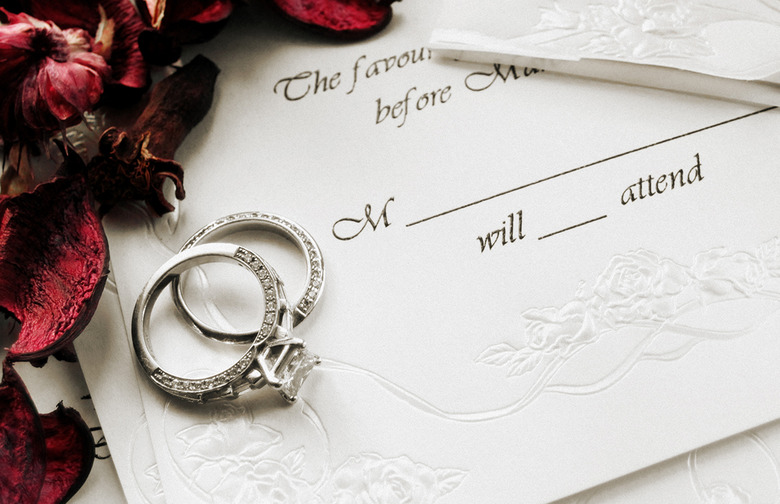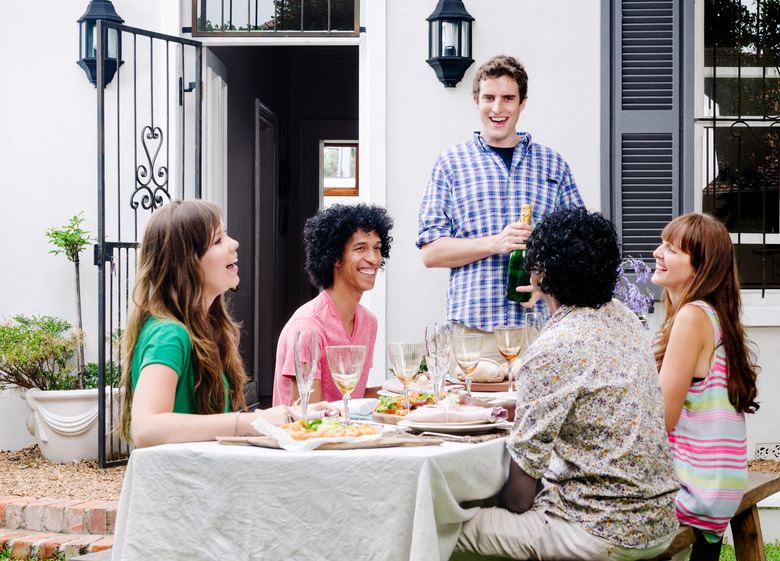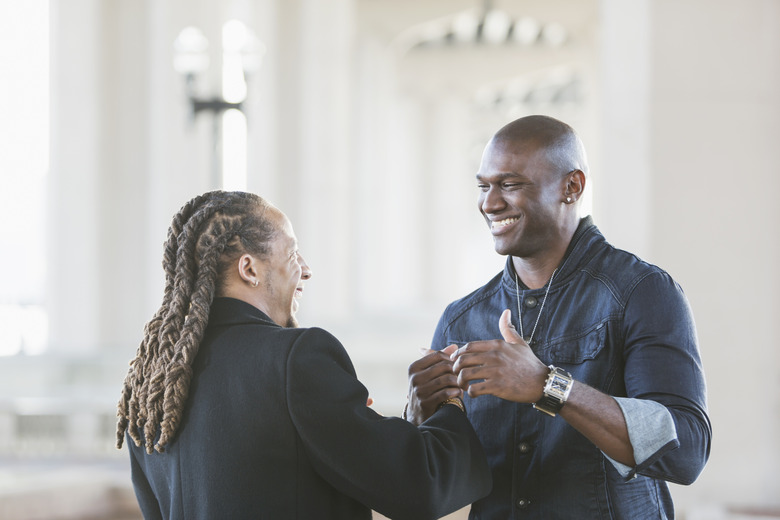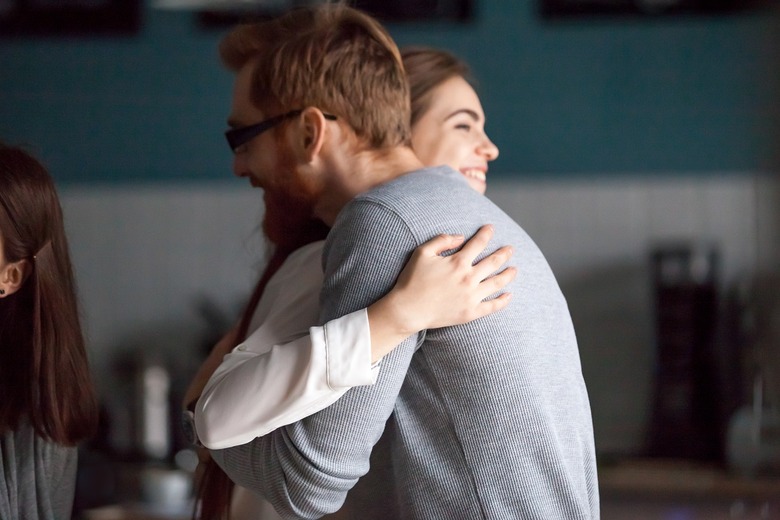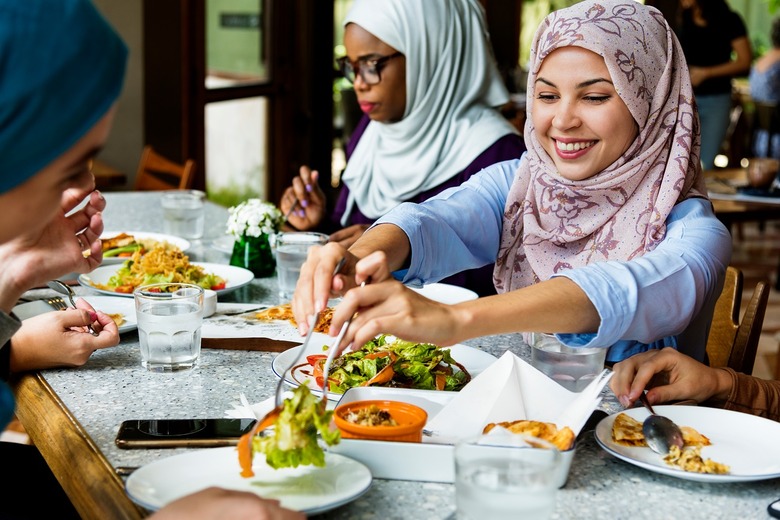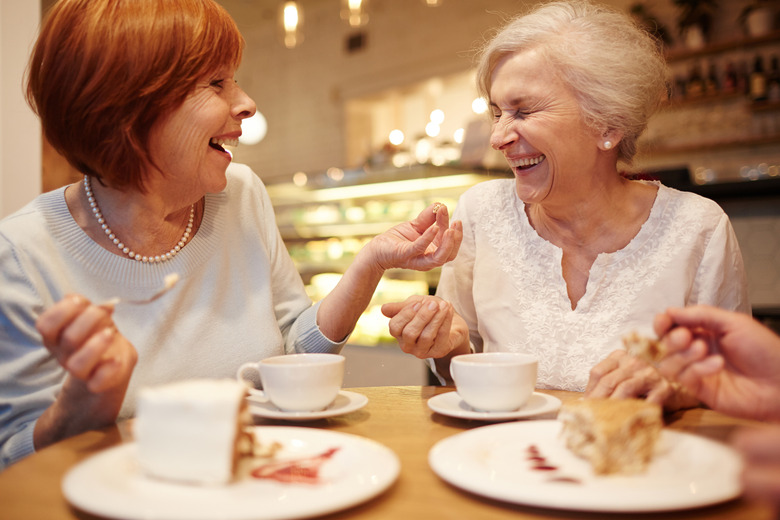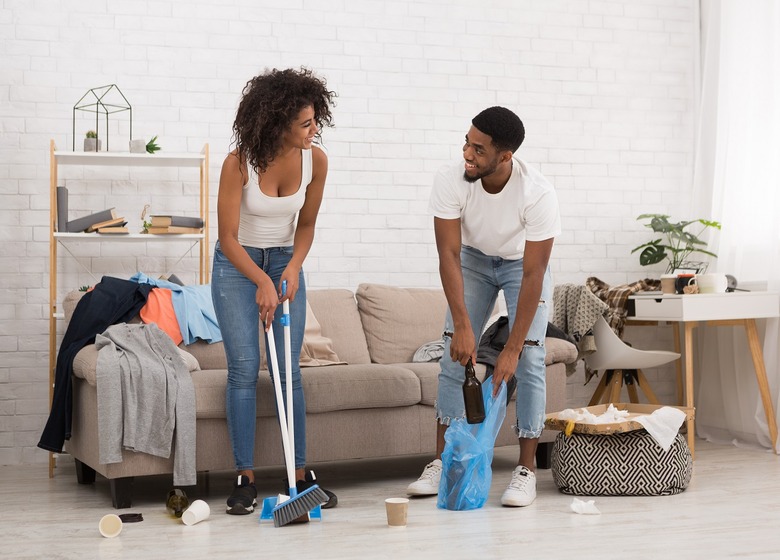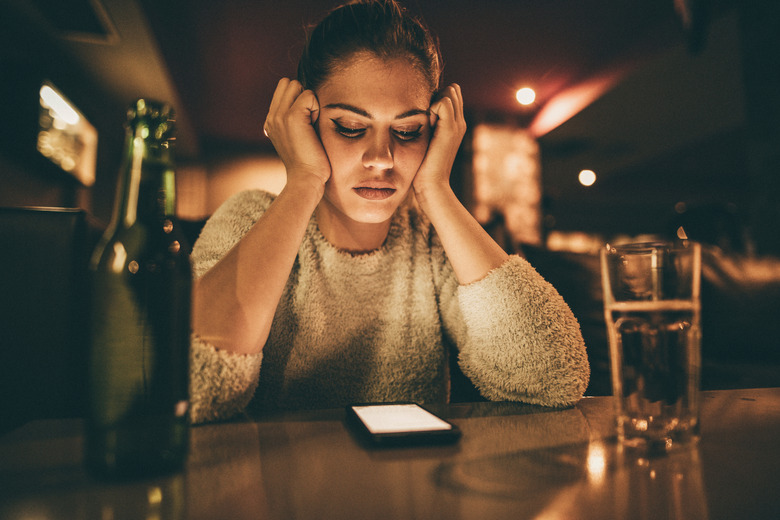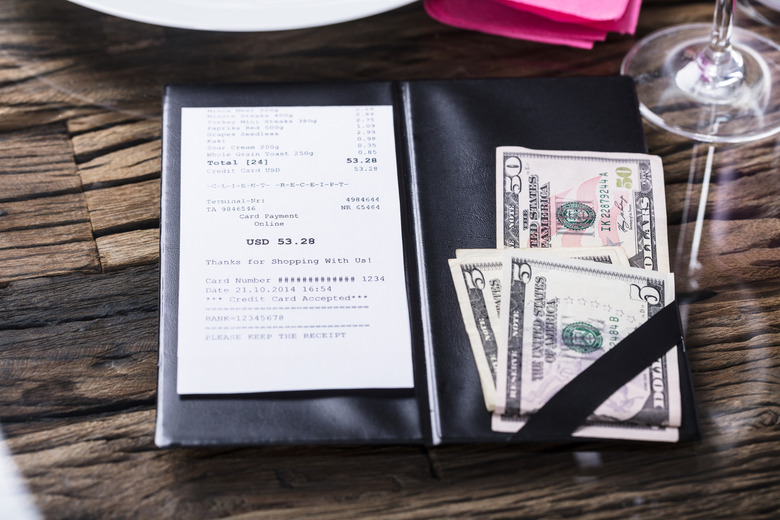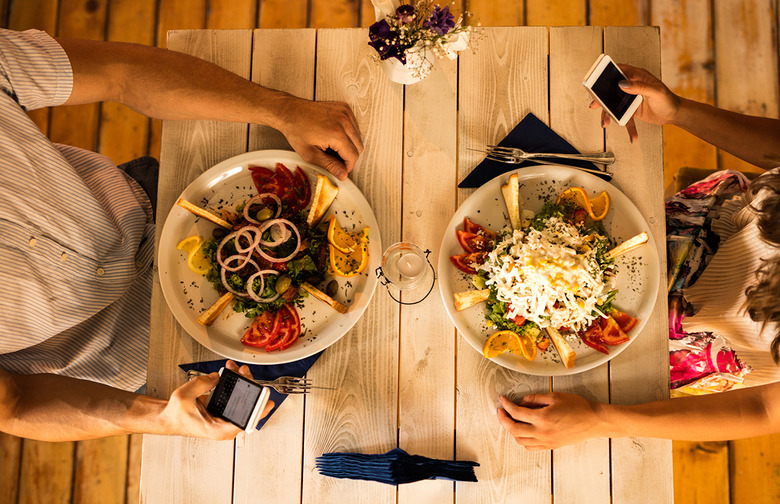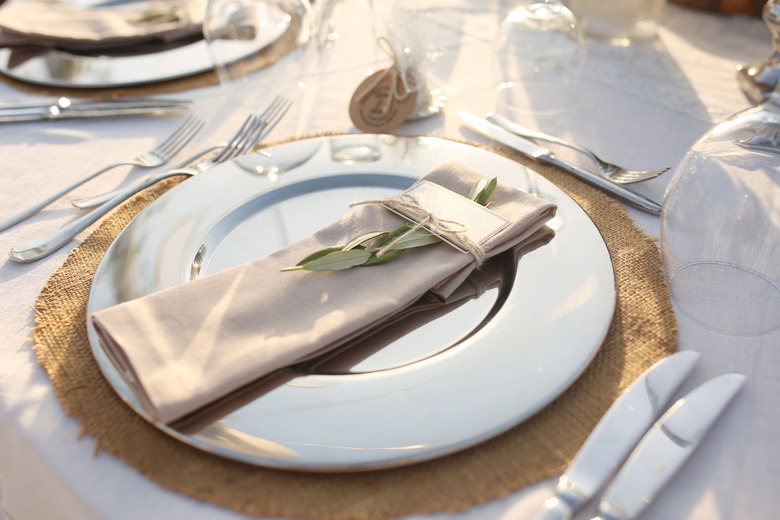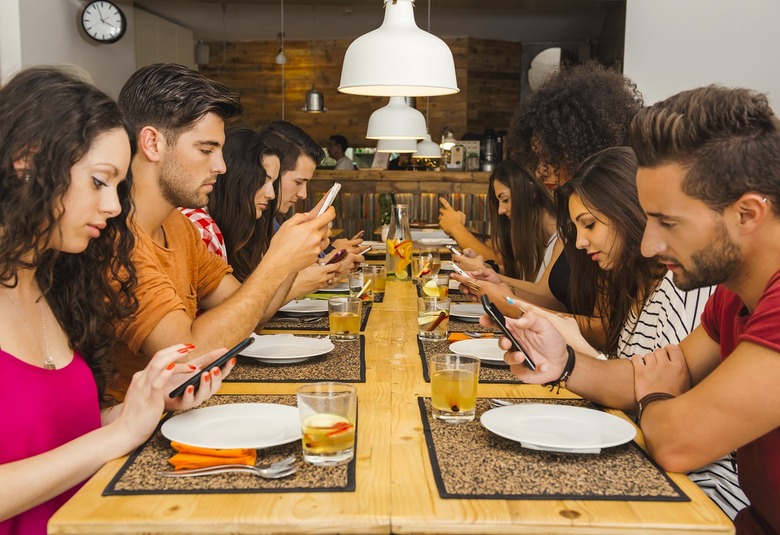Etiquette Mistakes You Need To Stop Making By Age 30
Whether or not you feel like an actual adult at age 30, there are certain things that, when done (or not done) after a certain age, are no longer excusable. You've been around for a while now, so it's high time you start responding to texts and emails, listen to people when you talk to them and show up to places on time. Not doing so is actually pretty rude, whether or not you realize it. What other etiquette mistakes should you stop making by the time you reach your third decade of life? Well, we're glad you asked.
Taking forever to RSVP
We get it, life is busy, especially if you're a frequent party guest. But you know who else has a busy life? Party hosts. So do them a favor and don't wait until the very last minute to respond to an invitation. You should actually send your RSVP back within a day or so.
Being late
If you worry you'll be late, give yourself ample time to account for traffic, trains or other obstacles. If you promise to be somewhere at 1 p.m., make it your duty to be there at 1 p.m. It's true that you can easily text someone to let them know you're running 20 minutes behind — but that doesn't make it OK. Being late is one of the worst etiquette mistakes you can make.
Arriving empty-handed
It doesn't matter how casual the event you're going to is, you should always be sure to bring your host a small token of your appreciation. A bottle of wine or a six-pack of beer is an easy go-to gift, but if you want to be the best party guest ever, know that bringing a small personalized item or something exclusive to your region (like chocolates from a local shop) makes the best present.
Not knowing how to greet someone
Do you go in for a hug? Move for a simple handshake? Wave hello? Knowing how to greet someone is one of the biggest questions about etiquette. If you're in a business situation, a handshake is the most appropriate way to start a conversation. Reserve hugs, kisses and other more intimate greetings for people you know will be accepting of them.
Forgetting to make introductions
We've all been in a situation where you're talking to one friend and another acquaintance strolls up and joins in on the conversation, perhaps even pulling you away from the original person you were speaking with. But the most polite people know that you should always make introductions between two people who do not know each other. This will ease any sort of awkwardness in the air, and those two strangers could even become fast friends.
Avoiding eye contact
Making eye contact can be uncomfortable, especially if you're an anxious person. But making eye contact with a person shows that you're focused on them and you're interested in what they have to say. This is an easy way to make a great impression on another person.
Not saying ‘please’ or ‘thank you’
It's easy to forget even your most basic manners, but remember the things that you learned all the way back in kindergarten. Saying "please" and "thank you" may seem small, but these phrases really do show your appreciation for others. They are just a few of the nice things you need to say more often.
Not sharing
When you think of the most basic manners every child should know, sharing tops the list. And knowing how to share shouldn't stop at kindergarten. If you're out to eat with a group of friends and order a batch of fried cheese curds as an appetizer, offer to share one or two (at least) with your dining partners. Not only is this the kind thing to do, but also giving someone hot, fried cheese dipped in ranch is maybe one of the easiest ways to be a better friend.
Gossiping
Wait, gossiping is a breach of etiquette? You bet it is. Gossiping is alarmingly common, especially considering it's one of the rudest behaviors and something you should absolutely quit. There are a lot of big and little consequences of dishing dirt that can affect your life in a negative way, ranging from stress to potentially losing your job, that should motivate your to stop gossiping.
Talking exclusively about yourself
Knowing how to have a good conversation is part of being a more polite person. The No. 1 rule of knowing how to make small talk is listening to the other person. If you really listen — and we don't mean just waiting for your next turn to talk — you can ask engaging questions and have a true discussion. Talking about yourself constantly is quite rude and may be a habit that is ruining your relationships.
Rejecting compliments
It's easy to feel uncomfortable when someone compliments your outfit, your intelligence or your accomplishments. If you're a humble person, hearing your own praises sung can be weird. But dismissing someone's compliments by saying "It's no big deal, "This outfit is old" or "I didn't work that hard" just makes the situation more awkward. It's much more painless to accept the praise.
Excluding others
Cliques don't end when you leave high school, no matter what you may think. While it shouldn't have to be said, ostracizing or ignoring people who want to join in on a conversation or be friends just isn't nice. Be a good person and ask that loner in your office out to lunch with the rest of the gang or loop that person clearly listening into your conversation at the bar. It'll make the other person — and you — feel better. Excluding others isn't just a rude behavior; it's actually one of the habits of truly toxic people.
Leaving a mess
One of the unspoken rules of being a houseguest is to leave a place where you are staying better than you found it. You can do whatever you want in the privacy of your own home, but when you're out in public or at someone else's home, try to be as tidy as possible. Hanging out at a friend's house and leaving a bunch of beer cans on the coffee table is a behavior best left back in your college days.
Forgetting to offer guests something to drink or eat
Guests aren't the only ones who can be rude; hosts can be rude — or just plain forgetful — as well. If you're having friends over, even just for a casual night of watching Netflix, be sure to offer them something to drink when they arrive and something to eat if they want it. Whether you just pop some microwavable popcorn or you decide to order a pizza for everyone, making sure your guests are taken care of is a habit of responsible people.
Not sending thank you notes
Very few people truly enjoy sitting down and writing mountains of thank you notes — it probably goes back to being forced to write them to every aunt and uncle who gave you $5 in childhood. But knowing how to write them in a timely manner is hugely important. After receiving a gift, be sure to send a thank you card with a greeting, a genuine expression of gratitude and small personal details. It's an etiquette lesson your grandma wishes you knew.
Posting your entire life online
Yes, your social media accounts are your own, but your online presence is important. Not only can your social media be a stranger's first impression of you, but it can also be a make-or-break piece of the puzzle when it comes to job searches or your dating life. So be careful before you let loose on the internet.
Discussing important things via text
We get it. It's so much easier to text or email someone rather than call or talk to them in person. But real-life contact is incredibly important, especially if the topic of discussion is meaningful or sensitive. If you're discussing a serious subject or even just having a lengthy conversation, it's much more proper (and efficient) to pick up the phone or meet for a coffee at a great local spot.
Not responding to calls, texts or emails
It's really easy to let those little notification bubbles on your phone add up. Who cares if you have 150 unread emails, 15 ignored texts and a handful of missed calls? Well, the people who are trying to reach you care. Making time for others can be hard, but return that call or email. It's not polite to ignore someone.
Ghosting
So you went on a date with someone you met online and the chemistry just... wasn't there. That's fine, it happens. There's no need to go on another date with someone you didn't click with. What you shouldn't do, however, is cease all communication with no warning, better known as ghosting someone. Just send a polite text saying you had fun but aren't interested in seeing that person again. Even worse is ghosting someone who you had a long, extended relationship with, be it a friend, family member or romantic interest. If you need some space from the people in your life, that's more than fine. But in most cases, you should let the people around you know that you're going to be taking some time for yourself.
Leaving a low tip (or not tipping at all)
If you're going out to eat, you need to account for leaving a tip. In most table service situations in the United States, a tip of 20 percent of your total bill is standard. Unless service is abhorrent or you ate at a counter service restaurant, remember that it is rude not to tip your server. And that's just one of many ways you could be acting rude in a restaurant.
Placing your phone or purse on the dinner table
Putting your bag on the table has been one of the worst table etiquette mistakes since etiquette queen Emily Post's day. Today, he rule against placing your belongings on the table extends beyond purses to also include wallets, cellphones and other small items. So what should you do? Place your bag under your feet, keep your phone in your pocket and keep the table clear for food and drinks.
Chewing with your mouth open
This major etiquette blunder may seem obvious, but you'd be shocked by just how many people chew with their mouths open or smack their lips while at the table. Remember, keep your mouth closed.
Talking with your mouth full
It should also go without saying, but try not to not talk with your mouth full of food. If you're eating a delicious steak dinner, just finish your bite before responding to a question. If need be, motion to your fellow diners that you're chewing. They'll be happy you waited.
Not knowing what dining utensils are yours
It's easy to get confused in more formal dining situations when there are all sorts of knives, forks, plates and glasses at your place setting. Luckily, it's easy to realize which dining utensils, plates and glass are yours. Make "OK" signs with each hand. You can easily remember the bread on the left is yours (the "b") and the drink glass on the right belongs to you (the "d").
Checking your phone while with others
No matter how entertaining that text or tweet, resist the urge to check your phone during a real-life conversation with someone — it's really rude. If you happen to be expecting an important call or text, let the people around you know before you start your evening. Paying attention and engaging with the real-life people around you is one of the top old-fashioned etiquette rules we need to bring back.
More from The Daily Meal:
The 30 Life Skills You Should Have by Age 30
21 Questions You Didn't Know Were Rude
11 Little-Known Etiquette Rules You're Likely Breaking

